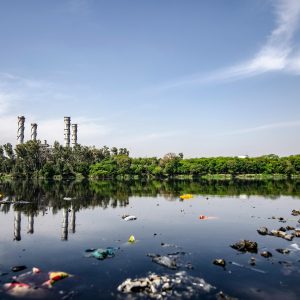Pakistan’s Punjab declares smog a ‘health crisis’
ANKARA (AA) – Cities across India and Pakistan are struggling with dense smog that has worsened air quality, with authorities declaring a “health crisis” in the latter’s Punjab province.
In Pakistan, despite aggressive steps by the Punjab government to curb the hazardous smog blanketing Lahore and surrounding areas over the past two weeks, cities continue to struggle.
The provincial government has closed schools in multiple districts, mandated an 8 p.m. closure for all markets, and restricted outdoor activities, including bans on entry to parks, zoos, museums, and sports venues to protect public health.
Marriyum Aurangzeb, the province’s senior minister, on Friday said the issue had now turned into a “health crisis,” and that the government prepared a 10-year policy to combat smog.
The worsening air quality has led to a significant spike in respiratory cases, with around 2 million people visiting medical facilities in Punjab in a month, according to data by the healthcare department. There has been a surge in complaints of asthma, conjunctivitis, and heart disease as well. In Lahore, the AQI surged past 500, posing a critical health threat.
In India, several northern cities, including the capital New Delhi, are experiencing dangerous levels of air pollution, with the air quality index (AQI) in Delhi reaching 425 on Thursday, classified as “severe.” Authorities have responded by implementing new restrictions from Friday, including moving primary school classes online.
The iconic 17th-century Taj Mahal and other monuments have been shrouded in smog, while flights and train services in several cities have been disrupted due to poor visibility.
Experts attribute the recurring pollution to winter conditions, agricultural stubble burning to clear fields, and industrial and vehicular emissions, which intensify the poor air quality across both countries.












